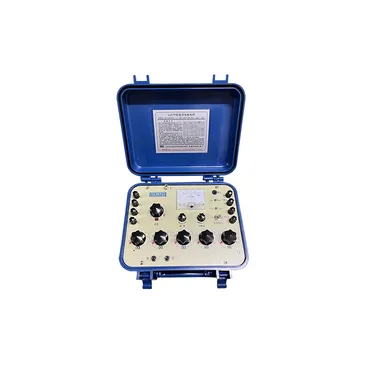The Best Instruments to Measure Resistance
Have you ever considered how vital electrical resistance is in the technology we use daily? It's a key factor in everything from smartphones to satellites. For engineers, mastering electrical resistance is crucial for ensuring the performance and efficiency of electronic devices.
In this article, we will discuss essential tools and techniques for measuring resistance. We will explore versatile multimeters and specialized ohmmeters and look into precision instruments like Wheatstone and Kelvin bridges. We will also discuss megohmmeters for high-resistance measurements and micro-ohmmeters for ultra-precise applications.
Understanding these tools will enable you to make the best decision for your project, demonstrating the real significance of resistance measurement in electrical engineering.
ZC36 High Insulation Resistance
Understanding Resistance Measurement Instruments
Electrical resistance is a fundamental concept in electronics, playing a pivotal role in determining how current flows through components. Accurate measurement of resistance is crucial for designing circuits, troubleshooting equipment, and ensuring product quality.
The Essence of Resistance in Electrical Engineering
To understand why we measure resistance, picture electricity as water flowing through pipes. Just as pipe size and material affect water flow, electrical conductors impede current to varying degrees—this impedance is called ‘resistance.’ Measuring impedance is an essential practice for engineers to ensure the safe and efficient operation of electrical systems.
Without precise measurements provided by reliable instruments, engineers would be navigating blind—a scenario full of potential hazards and inefficiencies. Quantifying this opposition to electric current within materials or components accurately allows us to tailor our designs for optimal performance.
Vital Tools for Diagnosing Circuit Health
Many tools have evolved to address the diverse needs of resistance measurement in electrical circuits. These range from simple devices for quick checks to more complex systems for detailed analysis.
Each tool is designed to cater to specific resistance ranges and types, with some pinpointing minute fluctuations and others built to withstand high-voltage environments.
From multimeters offering quick, on-the-go assessments to specialized ohmmeters for more detailed insights, the choice of instrument depends on the precision requirements and environmental factors encountered during testing.
Here are the seven key instruments we will focus on:
- Multimeter: This versatile tool measures voltage, checks continuity, and performs several other functions. It's essential for diagnosing problems and verifying circuit behavior, making it invaluable for field technicians and benchtop researchers.
- Ohmmeter: Ohmmeters provide enhanced sensitivity compared to typical multimeters. They excel in situations requiring detail-oriented readings, especially when dealing with sensitive electronic parts or when fine adjustments are needed.
- Wheatstone Bridge: A historical yet relevant tool for detailed resistor evaluations, the Wheatstone Bridge offers precision in measuring unknown resistances. It's particularly useful in applications where high accuracy is crucial.
- Kelvin Bridge: An advancement of the Wheatstone Bridge, the Kelvin Bridge is used for precise low-resistance measurements. It's crucial in industries like aerospace and automotive, where precision is key.
- Megohmmeter: Also known as an insulation tester, this instrument is designed for high-resistance measurements, typically in insulating materials. It's crucial for ensuring the safety and proper functioning of electrical systems and installations.
- LCR Meter: This sophisticated device measures inductance (L), capacitance (C), and resistance (R). It's indispensable for engineers needing comprehensive insights into the performance of electronic components.
- Micro-ohmmeter: Specialized for ultra-precise measurement of very low resistances, micro-ohmmeters are vital in quality control for applications such as circuit breakers or aircraft frame bonding, where even slight deviations can have significant consequences.
Each instrument plays a crucial role, offering the necessary precision and specificity for various applications. Understanding their unique capabilities and applications is key to selecting the right tool for your specific resistance measurement needs.
-
The Role of Tensile Force Testers in Quality Control and Material Science
NewsAug.01,2025
-
Maintenance and Safety Tips for Aging Ovens
NewsAug.01,2025
-
Density Balance in Forensic Science
NewsAug.01,2025
-
Advanced Optical Measurement Technologies
NewsAug.01,2025
-
A Buyer’s Guide to Tensile Test Machines
NewsAug.01,2025
-
Why the Conductor Resistance Constant Temperature Measurement Machine Redefines Precision
NewsJun.20,2025
 Copyright © 2025 Hebei Fangyuan Instrument & Equipment Co.,Ltd. All Rights Reserved. Sitemap | Privacy Policy
Copyright © 2025 Hebei Fangyuan Instrument & Equipment Co.,Ltd. All Rights Reserved. Sitemap | Privacy Policy

